Learning and knowledge sharing are fundamental to the LHSS Project. We invite you to search LHSS knowledge products and resources for the latest approaches, insights, and learning in the field of integrated health systems strengthening.
This report evaluates the resources dedicated to telemedicine services in Ukrainian healthcare institutions. The primary goal of the study was to understand the current utilization of telemedicine and to analyze the costs involved, with a detailed focus on the components of these costs. The findings will support efforts to enhance the purchasing mechanisms for the National Health Service of Ukraine, paving the way for further improvements in telemedicine provision.
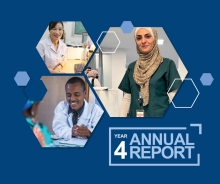
We are proud to share the LHSS Year 4 Annual Report which highlights the many achievements we celebrated with our country partners this year.
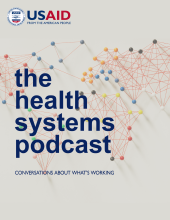
LHSS Chief of Party in Peru, Paulina Giusti learns what three organizations in Peru and Colombia are doing to improve access and link people with mental health needs to the services they require through psychosocial support networks.
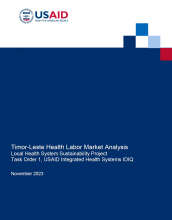
The health labor market analysis aims to provide an overview and analysis of the current status of the health workforce in Timor-Leste. The findings will serve as an essential resource for the MOH in building and managing a health workforce that is fit-for-purpose and fit-for-practice, as it develops the next iteration of the multi-year NSPHRH.
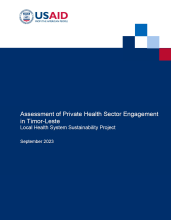
This report summarizes the findings of said assessment conducted by the MOH’s newly established Cabinet for Licensing and Registration of Health Activities with support from the Activity.

USAID and the MOH collaborated to improve health workforce management in Timor-Leste, focusing on job descriptions and evaluations. Moving forward, in-person training and institutionalization are recommended for sustainable implementation, aiming to enhance health care services and employee development.
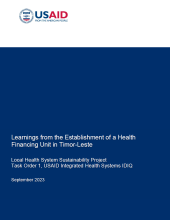
This document outlines the strategic process of establishing a Health Financing Unit (HFU) by the Ministry of Health(MOH) and USAID Health System Sustainability Activity(the Activity). It highlights key milestones, challenges, and lessons learned, emphasizing stakeholder engagement and tailored capacity building.
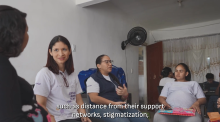
LHSS Colombia collaborated with national and local health authorities to address the mental health challenges exacerbated by the pandemic and mixed migration.
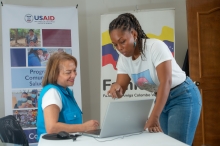
LHSS Colombia works with national governments to enhance the health system, focusing on local leadership, care, and integration in cities with high migratory flows like Bogotá, Cali, and Medellín.
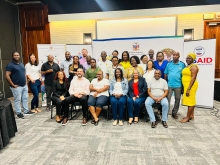
The Ministry of Health and Social Services gathered stakeholders at Midgard Country Estate to consult on standard operating procedures for social contracting. The goal: reach consensus on implementation plans and outline the path ahead, encompassing regional dissemination, pilot planning, and early implementation phases scheduled for later in the year.
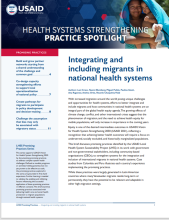
With increased migration around the world posing unique challenges and opportunities for health systems, efforts to better integrate and include migrants and host communities in national health systems are an integral part of the global health equity agenda.
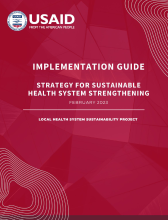
This implementation guide provides details on how project teams and local partners may implement the various approaches contained in the strategy, including tools and templates that may be adapted to country and activity contexts.
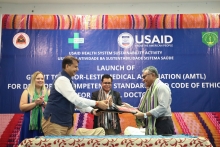
USAID | Timor-Leste and the Ministry of Health launched a groundbreaking initiative to bolster professional competence of health professionals to deliver and improve quality of health care services in Timor-Leste.
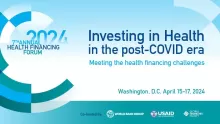
The World Bank, USAID and the Global Financing Facility (GFF), will host the 7th Annual Health Financing Forum (AHFF7) on April 15 to 17, 2024, on the sidelines of the 2024 World Bank/IMF spring meetings.

A medical waste shredder, procured with LHSS support, uses non-incineration technology and will protect Tajikistan’s environment.
